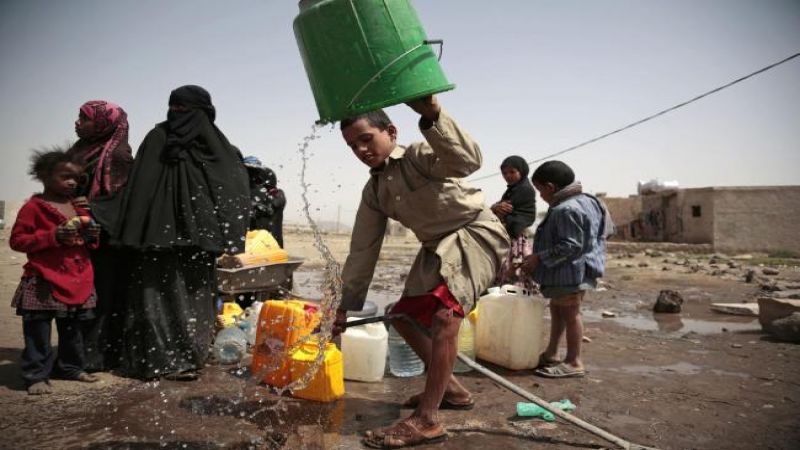
By Kirsteen Paterson
International Development Secretary Priti Patel came under fire Friday after her department claimed it was launching a new offensive against Yemen’s man-made cholera outbreak — as the UK profits from the conflict fuelling it.
The minister urged the world not to “close its eyes” to need in the devastated country.
However, Oxfam, Amnesty and the Campaign Against Arms Trade (CAAT) condemned UK “patch up” attempts against a backdrop of arms sales to Saudi Arabia worth billions.
The Gulf ally is leading the regional coalition engaged in combat with Yemen’s Houthi revolutionaries ….
The United Nations estimates that more than 10,000 people have died since the war began in March 2015, with most killings due to Saudi-led airstrikes and infrastructure — including hospitals, bridges, schools and residential areas — badly hit.
Meanwhile, the UK Government has licensed £3.3 billion worth of arms to the Saudi regime, including £2.2b of aircraft, helicopters and drones, £1.1b in grenades, bombs, missiles and countermeasures and £430,000 worth of armored vehicles and tanks.
Sales continue despite evidence gathered by Amnesty International and other organizations that war crimes have been committed.
Westminster says it takes such allegations seriously, but that it has no proof of wrongdoing by its ally and client, which is also holding back supply of food, medicine and other aid through a long-standing port blockade.
Amidst this backdrop, the country is now suffering the worst outbreak of deadly cholera since records began, with more cases in a single year than anywhere else in history.
More than 360,000 suspected cases were recorded in the three months since the outbreak began in late April and the total is now nearing 500,000 following almost 2000 deaths.
On Friday, the Department for International Development (DFID), led by Patel, said it was renewing its push to tackle the disease with £8 million in dedicated funding.
However, the cash is being taken from an existing budget of just £139m for the year, which is expected to provide food and nutrition support for just 1.7m of the 25m population and clean water and sanitation for 1.2m.
Cholera is caused by consuming food or water contaminated with the Vibrio cholera bacteria and, while those infected need medical care, chlorinated water supplies and careful waste disposal and hygiene can help control its spread.
However, lack of sanitation is helping cholera spread and charities like Oxfam are fighting a desperate battle in a country where all but one region — the island of Socotra — is untouched by conflict.
Patel said: “Yemen is on the brink of a catastrophic disaster if the world continues to close its eyes to the urgent help three quarters of people across the country desperately need.
Source: The National, Edited by Website Team